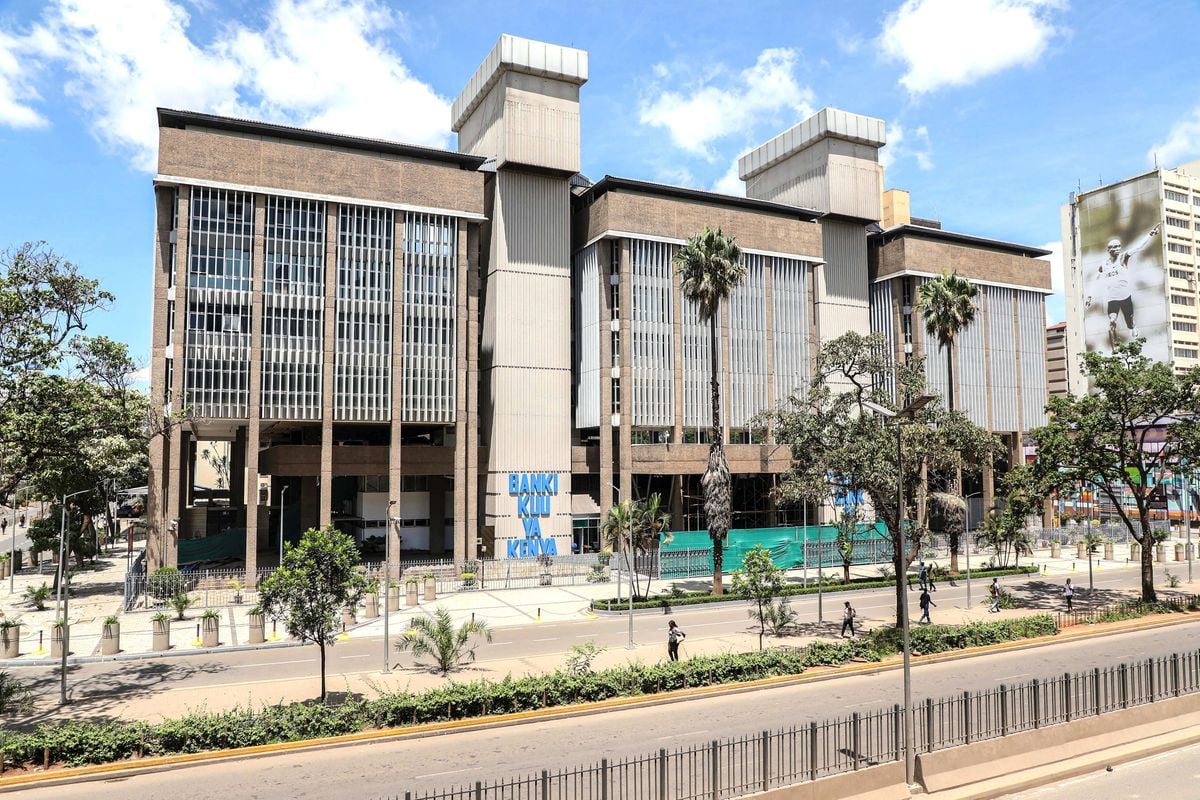
Kenya has turned to an undisclosed German firm for the printing of new notes months after allowing the local subsidiary of British printer De La Rue –in which it owns a 40 percent stake— to shut down for lack of new orders.
The Central Bank of Kenya (CBK) yesterday announced the development even as governor Kamau Thugge remained guarded on the name of the firm, how the tendering was done and how much will be spent on the deal. This publication could also not confirm if the sourcing for a new printer was through competitive or direct procurement.
In response to questions from the media during the post-monetary policy committee meeting, Dr Thugge only said the printing was being done by “one of the best firms” in Germany. There was no response to our emailed follow-up questions to CBK for further details.
The development comes barely 19 months after De La Rue Kenya EPZ Limited, a notes printing firm in which Kenya purchased a 40 percent stake for £5 million (Sh820.5 million) in 2019, shut its plant in Nairobi and wound down operations.
Germany has two prominent currency printers –Bundesdruckerei GmbH and Giesecke+Devrient GmbH— and it was not clear if either of the firms is the one that has been awarded a new contract to print notes for Kenya.
Giesecke+Devrient is one of the firms that in 2018 lost to De La Rue the bid to print Kenya’s new generation notes.
De La Rue wound up its currency printing operations in Kenya in the financial year ended March 2023 and spent £15.1 million (Sh2.48 billion) to lay off more than 300 workers, pay lawyers and write off its assets.
It said the exit was due to a confirmation from the CBK that there was “no expectation of new banknote orders” for at least 12 months.
Then CBK governor Patrick Njoroge said in February last year that the country’s currency needs were “completely fulfilled”.
The new CBK governor, Dr Thugge, justified the move to go for new notes for all the denominations as an important step to address stockouts.
“The notes we have are getting old and therefore we need to get new notes. The reason why we started with Sh1,000 notes is that we are projecting there could be a stockout of those notes in July or August and so it was really necessary that we get new notes as quickly as possible,” he said.
The notes will bear the signature of Dr Thugge and Treasury PS Chris Kiptoo. They will have the year of print as 2024 and will bear new security threads with colour changing effects that are specific to each denomination. CBK said the rest of the features remain the same as those of the series issued in 2019.
De La Rue’s exit marked an abrupt change of fortune for a firm that in late 2018 won an £85 million (Sh13.9 billion) three-year tender to design and manufacture Kenya’s new currency generation notes.
CBK disclosures show that currency production costs, which includes ordering, printing, minting, freight, insurance and handling expenses amounted to Sh12.51 billion in the past five years to June 2023.
De La Rue had dominated Kenya’s lucrative money printing business except for the period between 1966 and 1985 when another UK firm, Bradbury Wilkinson, did the job.
Allowing De La Rue Kenya to be wound up and then turning to a German firm for printing new notes means the government will not share in profits from this deal in the form of shareholder dividends, as was the case before.
Treasury’s dividend from the joint venture were £0.8 million (Sh131.2 million) in 2020, £1.2 million (Sh196.9 million) in 2021 and £0.9 million (Sh147.7 million) in 2022, before the wind-down costs saw it take a £2.9 million (Sh475.8 million) loss last year.
Kenya may also spend more money on the new deal given that unlike De La Rue that had a printing plant in Nairobi, the German firm will have to print the notes and then ship them into the country.
The country from 2013 pushed to have a stake in De La Rue. And when the joint venture officially took off on April 18, 2019, the country did not just have the stake but also two out of the five board seats.
The surprise announcement to wind down operations in Kenya also came hardly three months after Kenya Revenue Authority (KRA) in January last year won a case to collect Sh1.1 billion from the firm. The tax amount related to revenues earned in Kenya between 2013 and 2017.









